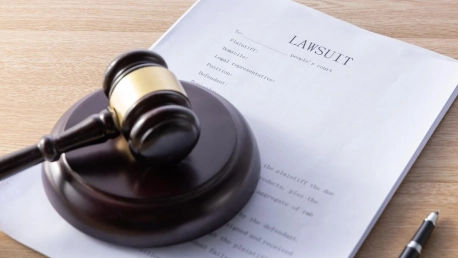In a significant legal showdown, the Montana Environmental Information Center (MEIC) is clashing with the state’s Department of Justice over public access to information. This confrontation centers on the environmental repercussions of Teck Coal’s operations on Montana’s water sources. MEIC is striving to divulge the nature of the DOJ’s exchanges with Teck Coal, highlighting concerns over transparency and the environment. The crux of this dispute is whether the public has a right to know the extent of any environmental damage caused by the foreign entity’s actions and the government’s response to it. This case is a pivotal one, marking the tension between governmental transparency, corporate confidentiality, and environmental stewardship. It exemplifies a broader struggle where protecting natural resources and keeping citizens informed is pitted against the privacy of corporate-government interactions.
Background of the Dispute
The MEIC’s legal move against the Montana DOJ emerges against a backdrop of serious environmental concerns. Teck Coal, operating coal mines in British Columbia, has been pinpointed by the US Geological Survey for its selenium pollution in the Elk River, which flows south into Montana affecting the Koocanusa Reservoir. The alarm over the coal company’s role in degrading water quality has led to a $60 million Canadian fine, emphasizing the severity of the pollution and its cross-border implications. But beyond fines and repercussions, the MEIC is driven to uncover the behind-the-scenes communications that shed light on the state’s true stance regarding corporate regulation and environmental protection.Teck Coal’s operations raise critical issues about the impact on species such as the westslope cutthroat trout and white sturgeon, highlighting the broader threat to biodiversity and ecological balance. It’s against this ecological emergency that MEIC’s quest for information unfolds, as the organization believes that understanding the discourse between the DOJ and Teck Coal could provide crucial insights into Montana’s commitment to environmental health.
Regulatory Conflicts and Litigation
Montana has set a stringent selenium water quality standard at 0.8 micrograms per liter, surpassing the EPA’s standard of 1.5 micrograms per liter. This move underscores the state’s commitment to protecting its waterways, yet it has sparked a debate with Teck Coal and Lincoln County Commissioners, who have pushed for a reassessment of these tough regulations. The ensuing contention has led to legal battles, with environmental groups like the MEIC and the Montana DEQ suing to prevent any weakening of these protective measures. The disagreement highlights the tension between environmental conservation and industrial interests, with the state’s water purity hanging in the balance. This legal struggle, led by the MEIC, stands as a pivotal moment in safeguarding the environment against compromise, maintaining the state’s environmental integrity against industrial pressures.
Legal Proceedings and Public Interest
At the heart of MEIC’s lawsuit is a confrontation over the DOJ’s partial compliance with document requests. The organization asserts that the department is hiding behind “common interest privilege,” a move MEIC regards as questionable since it involves a foreign corporation. The outstanding issue is whether this privilege claim is valid, hence the MEIC’s call for judicial review. This dispute reflects the vital need for unfettered access to information concerning how the state interacts with entities whose activities put public resources at risk.The public, whose stakes are high in the outcome of this battle, watches keenly as the lawsuit unravels. The pressing concern is whether government institutions act as unbiased regulators or if they blend their interests with those of the industrial parties they ought to oversee. The MEIC’s litigation not only confronts legal boundaries regarding privilege and transparency but also resonates with anyone vested in maintaining the ecological integrity of Montana’s waterways against industrial pollution.
MEIC’s Advocacy for Environmental Justice
The MEIC’s Deputy Director, Derf Johnson, has not shied away from criticizing the DOJ, underscoring a pervasive apprehension regarding the state’s interaction with Teck Coal. This lawsuit is a representation of a more significant advocacy for environmental justice, demanding that the veil over government-corporate communications be lifted. If governments and corporations remain unchecked, or worse, operate in tandem without public oversight, environmental protection may be compromised.The actions of the MEIC are a testament to the role of advocacy groups in safeguarding environmental integrity. By challenging the Montana DOJ, the MEIC champions a broader cause for transparency and accountability. The dispute brings into sharp focus the overarching struggle for environmental justice, where the quality of governance is measured by its transparency and the alignment of its actions with ecological welfare.









